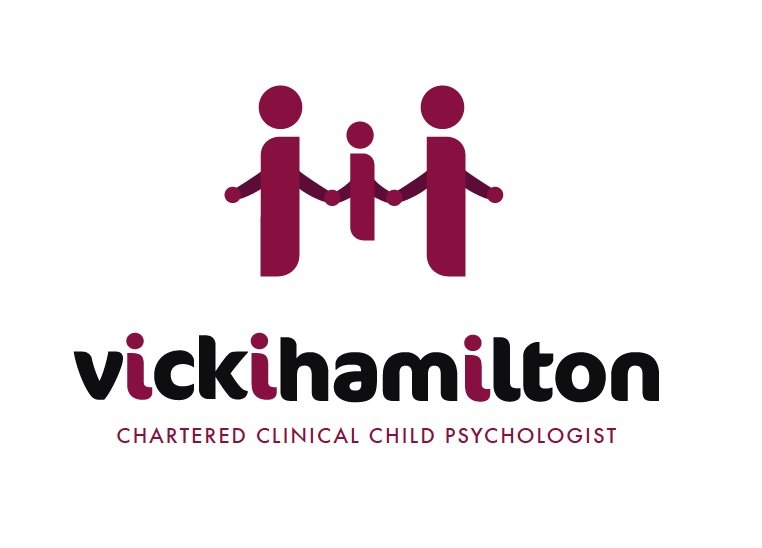What is a Child and Family Clinical Psychologist?
Child Clinical Psychology is an area of Clinical Psychology - which aims to reduce psychological distress and to enhance and promote psychological wellbeing. Clinical Psychologists deal with mental and physical health problems including anxiety, depression, relationship problems, addictions and relationships. Clinical psychologists work with both adults and children. Child Clinical Psychologists are familiar with the assessment of children’s emotional and behavioural presentation within the context of their changing development. They also have expertise in the assessment and management of certain conditions such as Hyperactivity (ADHD), Autism Spectrum Disorders, and other developmental disorders. Most Clinical Psychologists have undergone a lengthy (2-3 years) postgraduate training which is both University and NHS based.
Within their NHS child work they may also have specialised further in terms of expertise in parenting, attachment, trauma, chronic illness, and various treatment or therapeutic interventions.
Clinical Psychology is a “protected title” i.e. only those Psychology Practitioners who are registered with the Health Professions Council and therefore meet their standards and eligibility criteria can use this title. (There are two generic titles and 6 other domain specific titles e.g. educational, counselling, forensic). Those Psychologists who are registered can use a protected title and refer to themselves as HPC Registered.
The term “Chartered” (CPsychol) means that an individual is a member of the British Psychological Society and reflects the highest standard of psychological knowledge and expertise.
When is a Child Psychologist likely to be helpful?
Most helpful - when there are specific questions to be answered that require psychological knowledge and expertise.
What are the key issues?
What evidence is required?
What questions will best address those issues?
Maybe helpful - when things are stuck and there are specific concerns about whether there are psychological issues that are maintaining the dynamic e.g. adversarial and entrenched proceedings wherein professionals have been “recruited” to take sides. This can really depend on the quality of your expert.
Not likely to be helpful - “scatter-gun” approach and lack of focus on key issues.
Discussing the case with a potential expert may help to clarify issues and questions. Most Clinical Psychologists are experienced in case consultation and are happy to think through the issues with the instructing solicitor. A thirty minute phone conversation about a possible instruction can save time, effort, delay, and cost in the long run. Alternatively, asking an expert to review the papers and provide an opinion regarding the need for a full assessment or the type of expertise needed can also be helpful.
Usually experts are most useful (and cost effective) if there is a clear agreement about the key issues and the questions they are required to address.
What can we do?
Assessment by a child clinical psychologist will usually involve (but not always) direct assessment of the child; interviews with carers (past and present); observation of the child and identified parent together (especially if questions have been asked regarding attachments or parenting); and liaison with other involved professionals e.g. school, children’s services staff etc. Since most child clinical psychologists will usually meet the parents anyway, some Judges seem to like family assessments in which all family members are assessed by one psychologist. This may well work out to be more cost effective in some cases, providing the child clinical psychologist has the expertise to address the questions relating to the parent’s own psychological functioning. It can also lead to a greater consistency of approach, although it does leave the court very dependent upon the sole expert’s view, therefore it is even more important that the expert is qualified to undertake the assessment and provide an opinion.
Issues clinical psychologists can assess include:-
Child Factors:
a). Psychological functioning - e.g. behaviour; emotional functioning; habit disorders e.g. sleep, enuresis, encopresis; cognitive, social and emotional development; neurodiverse development e.g. ADHD, ASD (Autism Spectrum Disorders); and Attachment difficulties.
b).Therapeutic needs
c). Parenting needs
d). Assessing “harm” to the child
Adult Factors:
Impact on parenting of any parental issues and difficulties.
Parenting Factors:
a). Style/quality of parenting
b). What would parents need to support their parenting?
c). Potential for change
Interactional Parent/Child Factors:
a). Attachments and Relationships
b). Family Dynamics
Family System factors:
a). Marital relationship
b). Dynamics between siblings/ attachments
Critical Evaluation of a Child Psychological Assessment
Did they answer the questions? If not, is there an explanation as to why?
Have they provided alternative explanations for their evidence/opinion and evaluated those or explained why not applicable?
Have they defined key concepts/terminology? Do you understand how they got to their conclusion?
Have they integrated the results of their assessment into a meaningful and coherent evaluation of the issues (formulation)? Have they indicated an ability to reflect on maturational and development specific factors and issues?
Have they related their recommendations or findings to research or other evidence base or made clear what is opinion/own clinical experience?
Have they provided an explanation or rationale for the methodology of their assessment?
Has their background experience and expertise equipped them to answer the questions raised?
The Experience of the Child
Sadly, there are those cases in which, despite everyone’s best efforts, things are not resolved, and often there is a sense amongst the professionals that the children have become lost in a process which itself has come to feel abusive. In these cases, I often feel that an important part of my job is to help the professional system, and the parents, think about the child’s experience. In these circumstances, reports may well contain sections or elements that are written from a therapeutic stance and which are aimed at helping the parents and professionals take a step back if possible. Such sections may reflect conversations I have had with parents during the assessment, and feedback I have given about their child’s experience.

